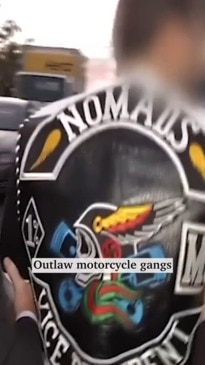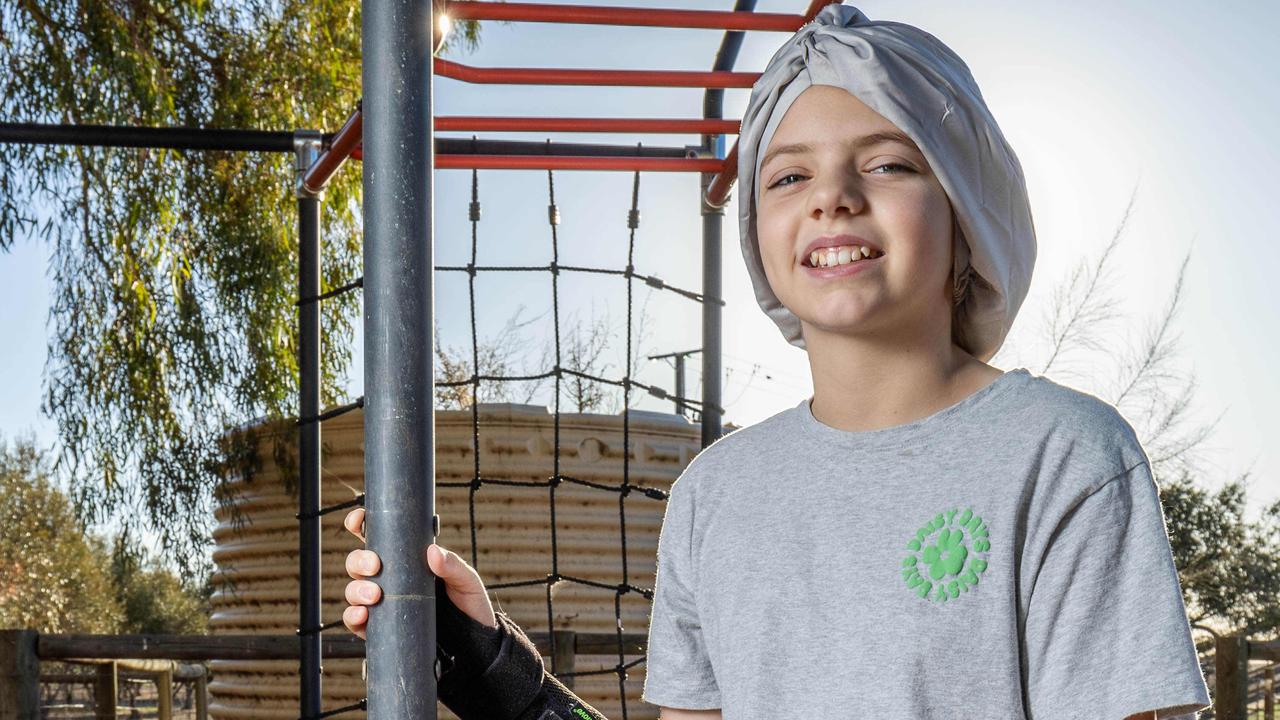What Adelaide’s bikies want ‘outsiders’ to know: Dr Rhys Wain explores how OMCG members really see SA’s strict anti-bikie laws
There are 10 declared outlaw bikie gangs in South Australia, but according to these members they’re just misunderstood social clubs.

SA News
Don't miss out on the headlines from SA News. Followed categories will be added to My News.
To those on the outer, outlaw motorcycle gangs are an enigma.
Rarely identifiable in public – other than when they appear in the media after a member or two have found themselves on the wrong side of the law – club members and the ins and outs of gang life remain a mystery to casual observers.
But despite their title, members insist they’re just a social club filled with like-minded men who get together for a beer and a laugh.
Dr Rhys Wain delved into the world of bikies in his 2022 PhD thesis titled “Declared criminal: An examination of the South Australian ‘bikie gang’ moral panic”.
In South Australia there are 10 declared criminal organisations.
These are the Bandidos, Comanchero, Descendants, Finks, Gypsy Jokers, Hells Angels, Mongols, Nomads, Rebels and Red Devils.
Dr Wain’s research paper examined the state’s anti-bikies legislation, including laws that ban members of OMCG knowingly being in public places with two or more members of a criminal organisation.
He also conducted a series of interviews with bikies, who remained anonymous, to gain their insights into their world.
Here’s what he uncovered:
What is club life all about?
One bikie described club life as “all about riding, drinking, and chasing girls”.
“We’re like-minded. We like bikes, we like the company,” he said.
“Most outsiders who get to know us say we’re nothing like what you’d think – It’s all laughter, half pissed people laughing their heads off.”
The member went on to describe bikies as “the most legislatively-oppressed people”.
“Police are generally waiting for us halfway down the street when we go anywhere, but we’re just having a laugh,” he said.
“We’re not getting together in secret to plan the end of the world.”
Another member said men get involved in the club because it’s “really good fun”.
“We go on rides, party at the clubhouse … we drink, have fun, and we work on our bikes,” he said.
“Guys can meet and get involved initially through bikes, or meet other members through sports, that sort of thing.
“It’s about camaraderie, good fun, and relaxing – we don’t let the s*** that bothers the rest of society bother us.”
The bikie even suggested that riding with mates was like therapy.
“A lot of us look younger than we are because we relax,” he said.
Another member said clubs were “kind of like a secret society”.
“It’s about a group of like-minded people, but even then, there are different groups of guys
within the club,” he said.
“There’s guys that like to smoke, there’s guys that like to drink, and then there’s guys like me that’d rather race (but essentially) the reason you join a club is freedom.”
Dr Wain’s research found that camaraderie was one of the main reasons people joined and remained in clubs.
“A significant number of members come from dysfunctional homes, and the clubs become their surrogate families,” he said.
“They use the term ‘brother’ to address each other because they feel that a familial bond exists between them.”
Club rules
Dr Wain wrote that despite purporting to be about individualism and freedom, examination of gang rules shows the groups to be “very collective, strict and conformist”.
“Organising a group of strong-willed men with vastly different ideas can be quite difficult, so the clubs typically have rigid structures and harsh discipline in order to maintain standards of behaviour,” he said.
However, one member said clubs may have initially had military-like rules but that had changed and matters were judged on a case-by-case basis.
“Hard and fast rules don’t always work,” he said.
“(For instance) when it comes to leaving, they’re more like flexible guidelines than rules.
“You’d need a good argument to convince your mates, but you always support
your mates – Especially with family or health, like when it comes kids or if you can’t ride a bike.
Another described how “everything goes through the committee”.
“Everything, individual behaviour – f*** ups – all come back on the club,” he said.
“The club is not (necessarily) all inclusive of members’ behaviour.
“Being on the committee can be like babysitting a bunch of kids at times, just trying to keep everyone on the same page.”
Extent of outlaw bikie gang criminality
Dr Wain argued that government and law enforcement agencies often made generalised statements that outlaw bikie gangs were heavily involved in organised crime but they rarely backed it up with any evidence.
Although only four per cent of Australia’s bikie population is in South Australia, the state’s OMCG members account for 19 per cent of the ongoing criminal enterprise offences across the nation, Dr Wain’s research found.
“While these figures imply that South Australian OMC members are involved in around five times as much organised crime as some of their interstate counterparts, they must also be read critically as they stem from arrests rather than convictions, and they are heavily skewed by both the varying levels of police resources focused on OMCs in each state and the different policy focuses,” he wrote.
“This is specifically an issue in relation to South Australia where the government has waged a ‘war on bikies’ over the last two decades, and as a result of the attention and resources focused on them, the likelihood of any crimes being detected is much higher than in some other jurisdictions.”
Dr Wain wrote that despite many OMC members appearing reasonably friendly, “their machismo and reputation for violence still make them incredibly intimidating”.
“Members do not usually join OMCs to become criminals but joining a club can lead to drastic changes in their attitudes and members sometimes feed off the fear and respect that membership generates,” he said.
One member acknowledged the criminal backgrounds of some members.
“You know some guys have criminal records before they join the club, and people always bring that up, but the club keeps them in line,” he said.
“We don’t tolerate ice, it can really change a bloke’s personality, so they get thrown out.”
Another bikie said: “Misbehaviour is not top-down, it’s bottom-up. Those members aren’t acting for the leaders or for the group, they’re acting against”.
What bikies think of the anti-bikie laws?
One member issued a blunt summary of how the state’s anti-bikie laws have affected them.
“They’ve f***ed the lifestyle,” he said.
“We can’t have a meeting and then go to a couple of pubs like we used to do.
“We can’t even go on runs together; we have to meet up over the border.”
Another member said the effect of the laws on him and his peers was that “you have to be careful, you have to be diligent, and you can’t be with your mates”.
“Like you can’t go to the footy, can’t sit together, can’t go there to together,” he said.
“You might not get caught at the time, but most public places have cameras these days, and you’ll probably get caught later.”
Dr Wain argued that the legislation did not ultimately stop crime of violence but rather is simply made convictions easier to secure.
Overall, Dr Wain argued the bikie anti-association laws “radically favours security over liberty, creating a dangerous legal precedent”.
More Coverage
Originally published as What Adelaide’s bikies want ‘outsiders’ to know: Dr Rhys Wain explores how OMCG members really see SA’s strict anti-bikie laws




